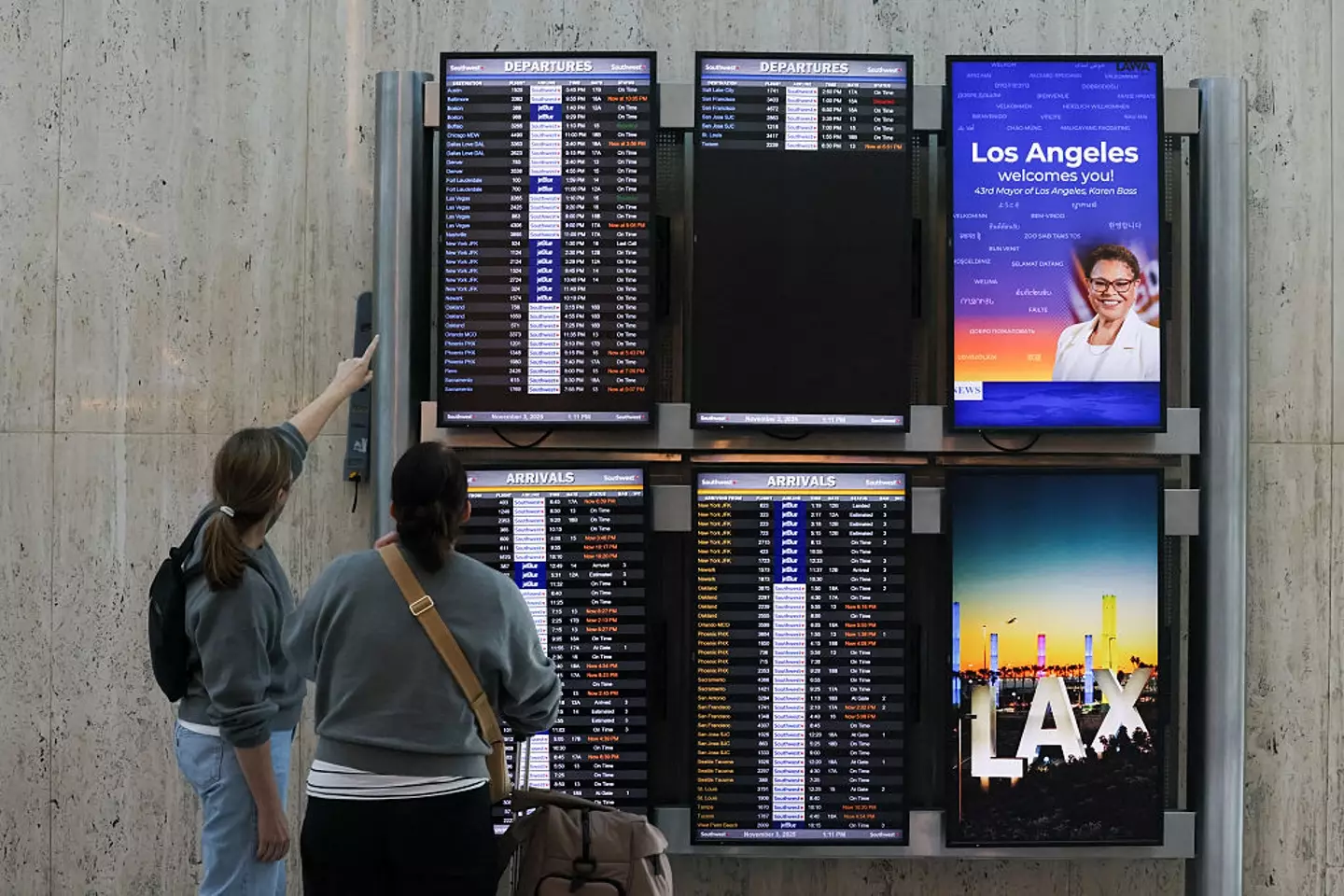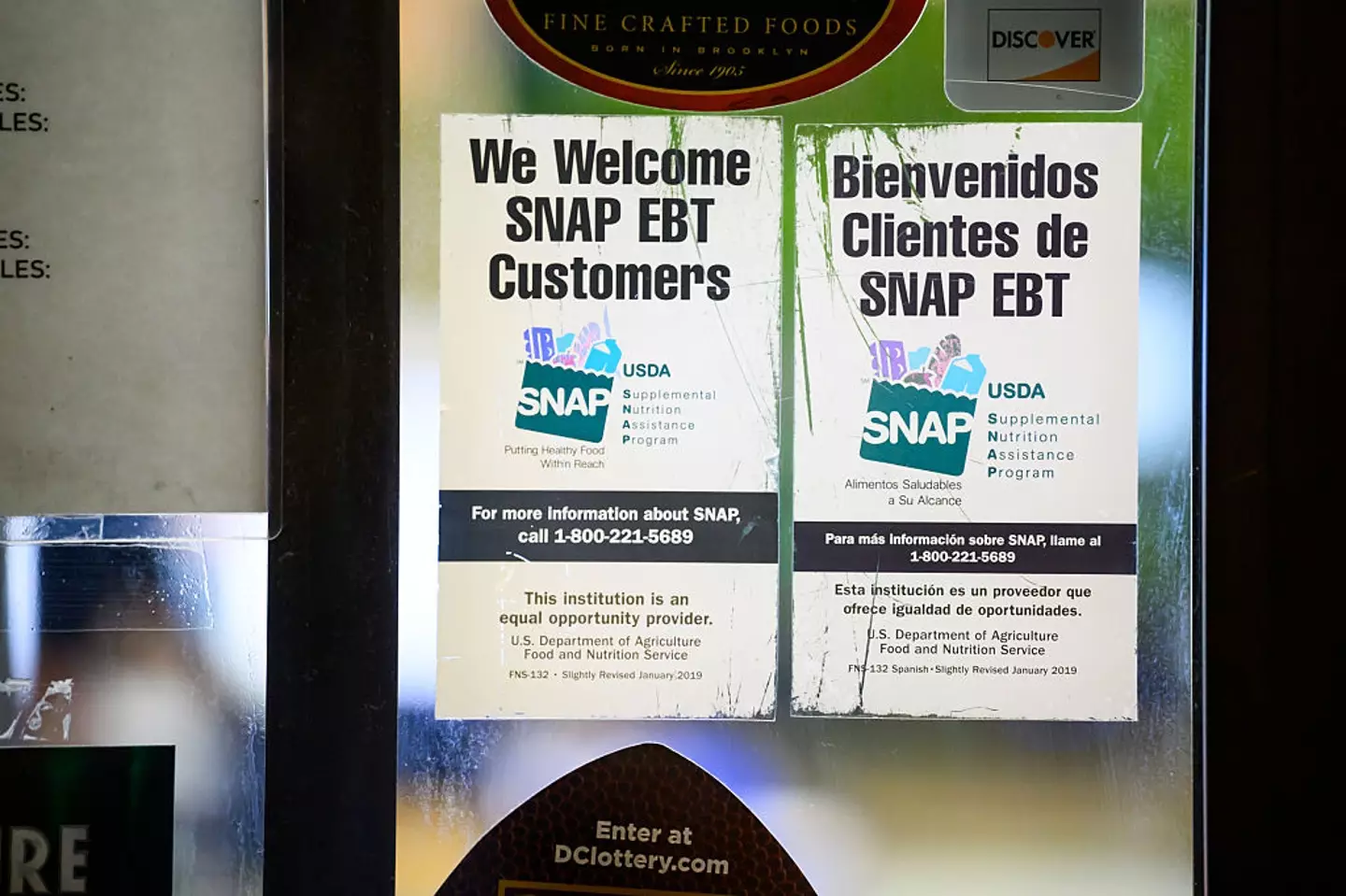
It's official - America is facing the longest government shutdown in the country's history.
The historic shutdown entered its 36th day today (5 November), making it longer than the previous record, which happened during US President Donald Trump's first term, lasting 35 days.
Before this, the longest closure of the US government on record began on December 22, 2018 and spanned 35 days, before coming to an end on January 25, 2019.
Since this one started on October 1 and shows no signs of ending, it's taken the title of longest ever - however, it's not exactly something to celebrate.
Advert
The lives of millions of Americans have been disrupted, with thousands of federal workers going without pay as all non-essential parts of government remain frozen.
People could soon lose food aid benefits, health care subsidies are set to expire, and there are few real talks between the two major political parties over how to resolve the matter.
So, how could the record-breaking shutdown affect you?

Flight delays
If you have a holiday booked to or from America any time soon, you may want to factor in more travel time.
This is because US airports are seeing a pile-up of flight delays, reports Sky News.
According to Airlines for America, more than 3.2 million travellers have had flights delayed or cancelled due to air traffic control staffing issues since the shutdown began.
This is because air traffic controllers and Transportation Security Administration (TSA) officers are deemed essential and are told to go to work; however, they won't be paid until the shutdown ends.
So, a lot of them are being forced to take on second jobs or even quit as they can't afford to miss these paychecks.
According to the Federal Aviation Administration (FAA), 13,000 air traffic controllers have been working without pay for weeks, as well as 50,000 TSA officers.
Transportation Secretary Sean Duffy told CNBC: "You will see mass flight delays. You'll see mass cancellations, and you may see us close certain parts of the airspace, because we just cannot manage it because we don't have the air traffic controllers."

Food stamps reduced for millions
Millions of Americans who rely on food stamps are going to be getting less, as well as payments to the Supplemental Nutrition Assistance Programme (SNAP) being delayed.
SNAP provides food benefits to low-income families to supplement their grocery budget so they can afford the nutritious food essential to health and well-being
The US Department of Agriculture (USDA) said in a court filing this week that Americans who receive food assistance from SNAP will get half their normal monthly allotment, after the government dipped into emergency funding.
The government initially planned to freeze payments to the programme on 1 November, saying that it could no longer keep funding it due to the shutdown. However, federal judges stepped in and insisted that the Trump administration would need to at least partially fund it.

Federal workers are going without pay
As we say, federal employees have all either been furloughed or are being forced to go without pay, meaning some have had to turn to food banks.
Sky News reports that approximately 750,000 have been furloughed, with thousands more having to work without any monetary compensation.
One American, Anthony Speight, was furloughed for the first time in his 17 years working as a federal employee.
He told NBC News that he 'never thought' he would have to ask the community for help, but was forced to visit a food bank at the end of October.
He said: "Bills continue to pile up. I have car notes, I have children to feed, I have a family to take care of, I have a mortgage to pay, so it's a lot of uncertainty."

Heating help and preschool centres at risk
Other daily essentials, like being able to heat your home and send your children to preschool, are also at risk.
The Low-Income Home Energy Assistance Programme (LIHEAP) provides heating and cooling assistance to roughly 6.7 million households, preventing utility shutoffs and assisting with bills.
However, according to PBS News, funding for the program is being delayed in some areas due to... you guessed it, the shutdown.
Finally, Head Start programs have begun to temporarily close around the US as they run out of federal funding. These are free, federally funded programs designed to promote school readiness for infants, toddlers, and preschoolers.
As reported by AP News, dozens of centres are missing out on federal grant payments that were due to arrive on 1 November.
Topics: Donald Trump, Politics, US News, World News, Money, Life, Real Life, Explained